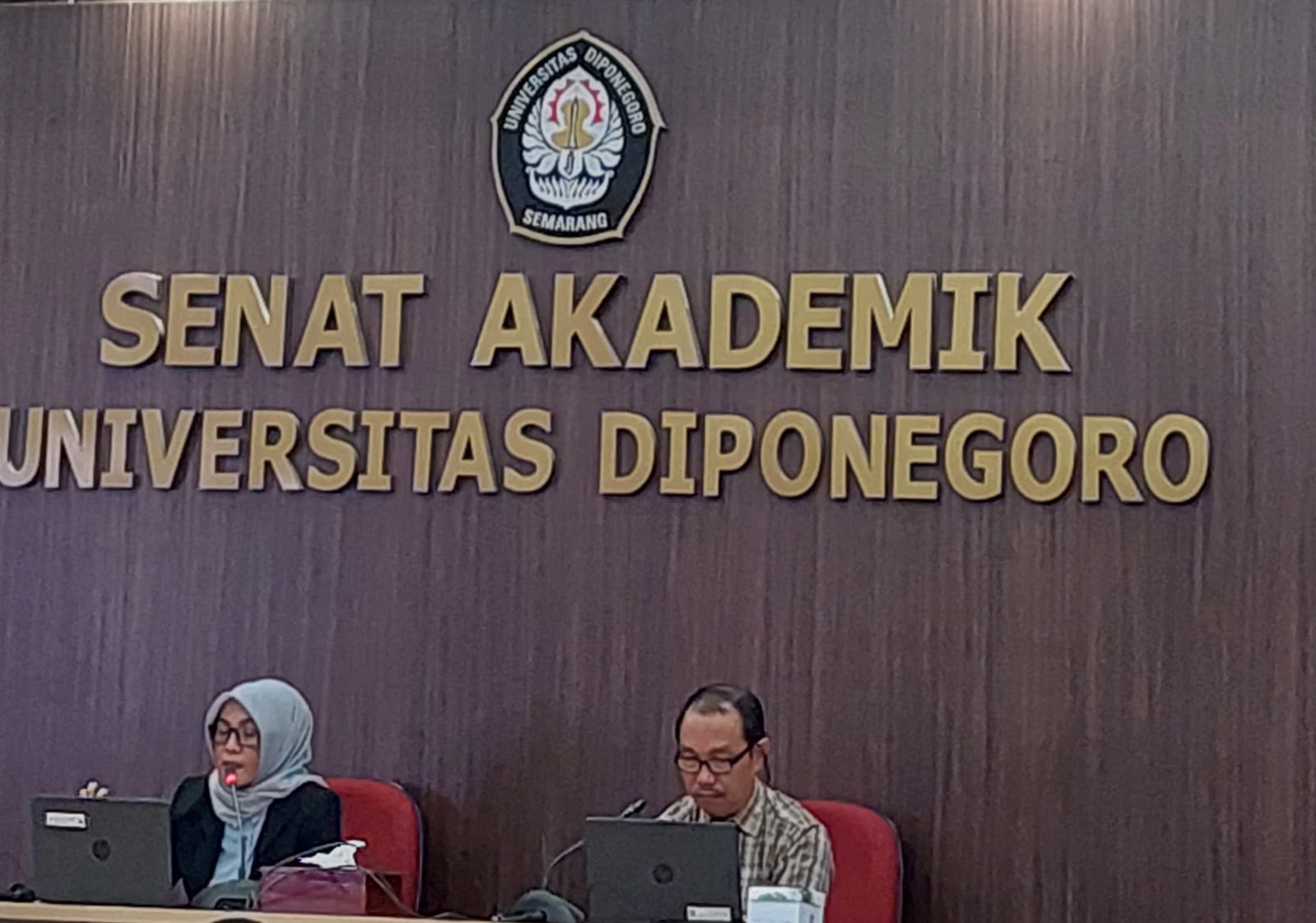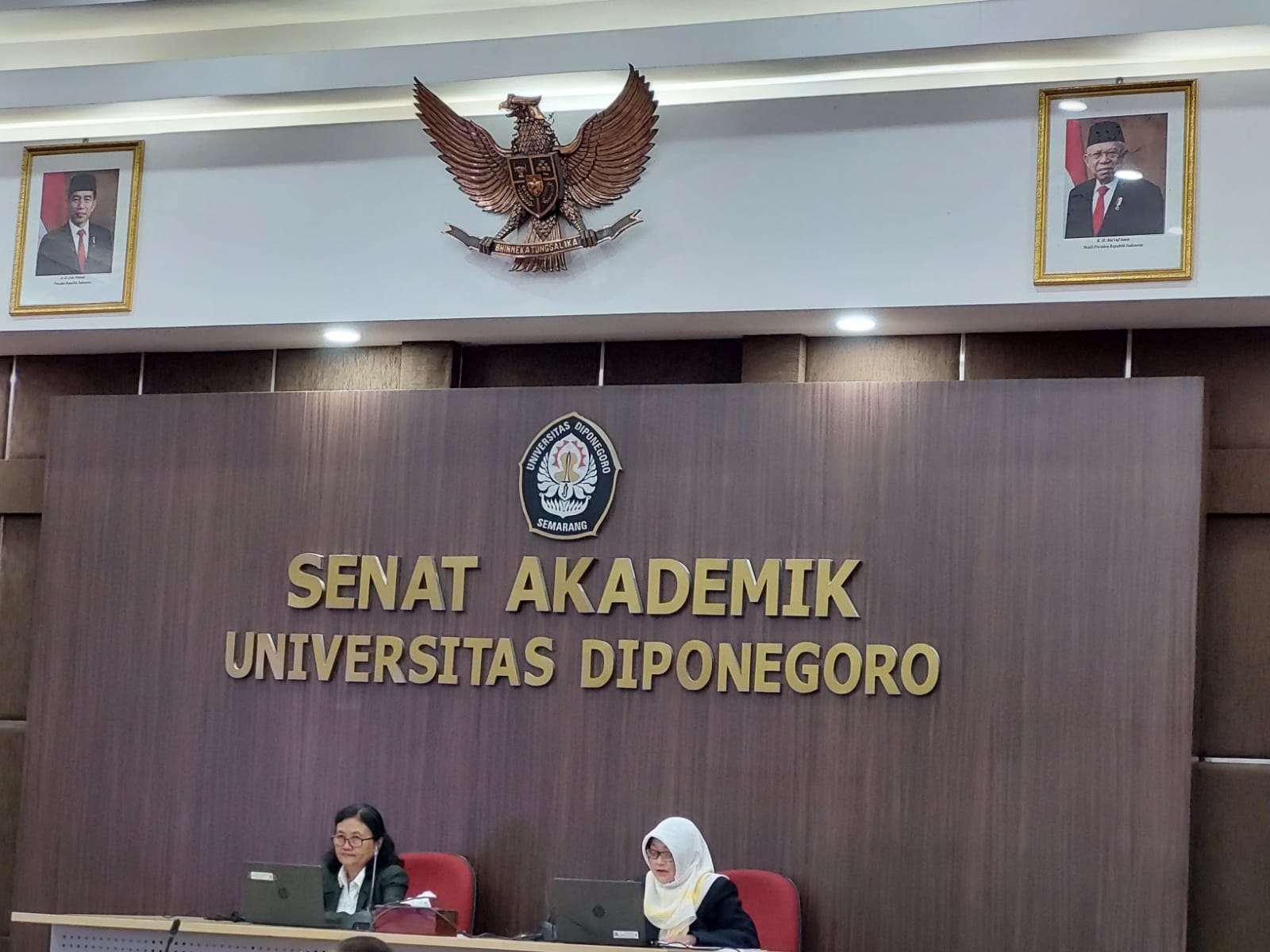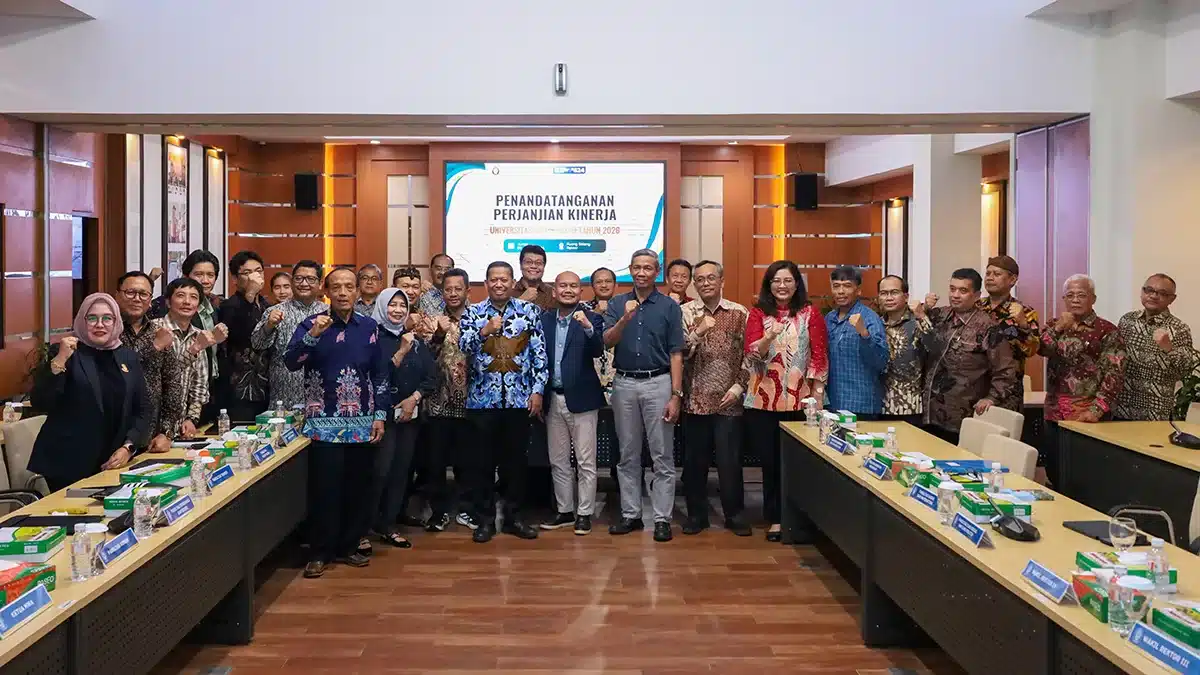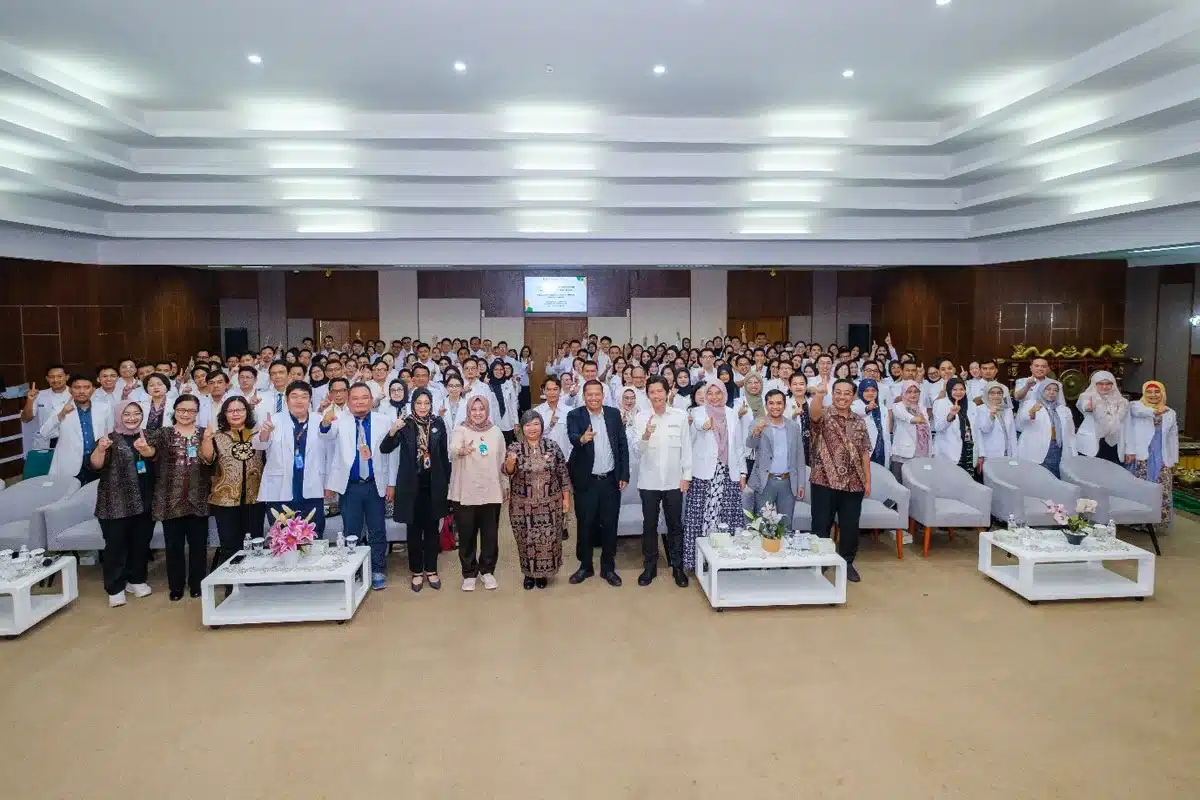Diponegoro University held a scientific paper presentation of three Undip professor candidates organized by the Diponegoro University Board of Professors on Thursday (22/6). The prospective professors from the Faculty of Engineering is Ir. Eflita Yohana, M.T., Ph.D. and from the Faculty of Science and Mathematics are Adi Darmawan, S.Si., M.Si., Ph.D. and Dr. Endang Kusdiyantini, DEA.
Ir. Eflita Yohana presented a paper entitled Innovation of Low-Temperature Spray Dryer to Support Post-Harvest Processing of Agricultural Products. She explained that when the harvest season arrives, prices for agricultural products at the producer level tend to be low due to excess supply, poor supply chains, and limited processing capabilities. The nature of the product is generally not resistant to being stored for a long time, and the characteristics sensitive to hot conditions are at risk of damage to crop products. A way to maintain the state of the harvested product is through the preservation process.
 “Means of preservation through drying, especially by spray drying at the level of farmers and MSMEs actors, are still minimal, even non-existing because this method still seems to be high technology which is relatively expensive. Spray drying is a tool to convert liquid concentrate into dry particles by converting it into atomized droplets and then passing it through hot air to allow heat and mass transfer,” she said.
“Means of preservation through drying, especially by spray drying at the level of farmers and MSMEs actors, are still minimal, even non-existing because this method still seems to be high technology which is relatively expensive. Spray drying is a tool to convert liquid concentrate into dry particles by converting it into atomized droplets and then passing it through hot air to allow heat and mass transfer,” she said.
“Innovation and modification of the CYCLONE geometry can increase efficiency, speed up the separation, and reduce drop pressure. Adjusting the distance between the vortex limiter and the vortex finder further increases particle separation efficiency, while adding a metal rod increases the pressure drop. The innovation of the metal rod vortex finder model to a tapered shape increases separation efficiency and reduces drop pressure. At the same time, adding coolant to the outer cyclone cylinder speeds up separation, lowers the temperature, and reduces the risk of particle clumping,” she continued.
In his paper on Silica Membranes for Separation: Progress, Challenges, and Applications, Adi Darmawan, Ph.D. said silica membranes are a promising technology for separation processes, offering various advantages such as high selectivity, chemical stability, and adjustable pore size. This paper provides a comprehensive overview of silica membranes, focusing on the progress made, challenges faced, and applications of silica membranes. Membrane technology offers many advantages for separation processes compared to conventional separation techniques, including (1) high selectivity, (2) energy efficiency, (3) environmental friendliness, (4) continuous operation process, (5) flexible scalability, (6) versatility, and (7) integration potential with various other separation techniques.
“Silica membranes have emerged as a promising and versatile technology for separation applications. Silica membranes have great potential in gas separation, desalination, and other liquid separation applications. The use of silica membranes can contribute to a more sustainable and energy-efficient separation process, addressing the global challenges of scarcity of resources, environmental concerns, and the increasing demand for pure water and valuable chemicals,” he explained.
While the paper raised by Dr. Endang Kusdiyantini discussed the Characterization of Carotenoid Natural Pigments from Microbes for the Development of Biochemicals. Carotenoids are yellow, orange, and red pigments that are widely distributed in nature, and these compounds have received great attention because of their benefits for human health, such as β-carotene which functions as a precursor of vitamin A, antioxidants, thus playing a major role in defense against cancer and also increasing immune response.
“Exploration for new pigment sources continues to be carried out in line with the increasing demand for natural pigments, especially in the food, pharmaceutical, and cosmetic industries. Optimization of growth and production through fermentation technology needs to be developed on an industrial scale to maximize yields. Species development needs to be done, for example, in biotechnology, to get superior species. Developing pigments is a challenge, especially related to the food industry, which must match the aroma, taste, safety, and nutritional value,” Dr. Endang concluded. (LW-Public Relations)










